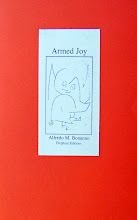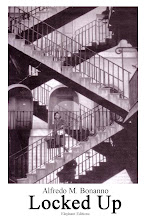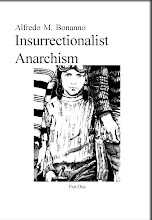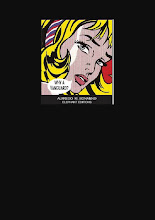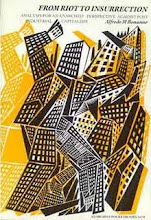A bank that guarantees it will deal with money in an ethical way, in other words one that functions within a global project of justice, solidarity, autonomy and nonviolence.
Is such a thing possible? Some people believe so and dedicate their time to supporting this kind of initiative, i.e. to creating banks that, in their opinion, are capable of operating in the economic field with a social conscience and some criteria of solidarity, satisfying physical, cultural, emotional and spiritual needs rather than the simple profit-making that regulates commercial banks.
These ethical banks do not set profit as their goal, but have a social aim, in that they want to prevent marginalisation and favour cooperation between advanced capitalist societies and those that are considerably less so. To put it simply, they want to create harmony between ethics, politics and economy. Discussions about initiatives such as this, which see themselves as self-managed, merit further examination. Here we will limit ourselves to making a few points.
It is not possible to ‘separate’ one sector of the economy and manage it differently to the rest. No one can seriously believe it is possible to enter the world of finance and keep themselves rigorously separate from the financial system as a whole. That is impossible from the moment one goes beyond the threshold of meaning, i.e. as soon as the bank and alternative network becomes a point of reference for the offer of money. The fascination for the idea of alternative credit goes back to attempts to realise Proudhon’s ideas, which were developed not from an ethical point of view, but as an instrument of struggle against the all pervasive power of capitalism. Those who examined the ethical problem of economic management—not only finance, but the economy as a whole—were economists of the Catholic school, Toniolo, then Vito and Parrillo, the latest to have worked out the problem in terms that were acceptable to capital. In fact, the Roman Catholic church has approached the problem on more than one occasion, with all due caution.
We are convinced that no such thing as an ‘ethical’ management of money is possible, just as there is no way to face capital and the economy as a whole that is not conflictual.
It is sufficient to read the list of principles that are defined as ‘ethical-political’ by the promoters themselves, to see what we mean:
1) my money must simply be an instrument, not a source of profit;
2) my money must not serve to finance the arms trade;
3) my money must not be mixed with ‘escaping’ capital;
4) my money must not support dictatorships;
5) my money must not speculate on poverty;
6) my money must not support activities involving laundered wealth derived from illegal activity.
That is all very well, so long as ‘my money’ remains ‘mine’ and so long as it pays me sufficient interest.
Do we really believe we can self-manage and ‘humanise’ capitalism?
I certainly don’t.
[Original title: La banca etica, in “Canenero”, no. 1, 28 October 1994. English translation by Jean Weir published in "Let's destroy work, let's destroy economy", Elephant Editions, London.]
skip to main |
skip to sidebar

Some writings of Alfredo Maria Bonanno in English, or almost

Alfredo Bonanno was arrested on October 1st 2009 in Greece, accused of concourse in robbery. With him, anarchist comrade Christos Stratigopoulos.
Here are a few translations and part translations of a small portion of Alfredo's writing. This is a work in progress, many of the translations are as yet incomplete. Open links to find more of Alfredo's work.
Alfredo Bonnano Released
Nov. 22 Alfredo Bonnano was sentenced to 4 years imprisonment (which practically means that with the time served so far and the fact that he is over 70years old HE IS RELEASED
Christos Stratigopoulos (who took responsibility for the action)
was sentenced to 8 years and 9 months with the Greek law will probably be released at the end 2011
BY ANY MEANS NECESSARY
LINKS
click on any of these labels to read text
- "Community" sickness
- 1981 - Editorial
- A Critique of Syndicalist Methods
- A few notes on Sacco and Vanzetti
- A few notes on the revolutionary movement in Italy
- A little man in Singapore
- A million jobs
- A question of class
- Affinity
- After Marx autonomy
- Albania Laboratory of Subversion (Introduction)
- Anarchism and the national liberation struggle
- Anarchists and action
- AND WE WILL ALWAYS BE READY TO STORM THE HEAVENS AGAIN (Against amnesty)
- ANTI-INSTITUTIONAL MOVEMENT
- Are we modern?
- Armed Joy
- ARMED STRUGGLE. SOME REFLECTIONS.
- Autonomous base nuclei
- beyond syndicalism
- Beyond workerism
- But what is the imaginary?
- Class War
- Comiso - Organizational document of the self-managed leagues
- Considerations on illegality
- Dissonances (Introduction)
- Elephant Editions 1986
- Excluded and included
- Farewell to claiming
- Feral Revolution (Introduction)
- FICTITIOUS MOVEMENT AND REAL MOVEMENT
- For an Antiauthoritarian Insurrectionist International - Proposal for a debate
- From riot to insurrection
- From the centre to the periphery
- Good technology
- Guerilla Extraordinary
- Habits and idols
- Hegel
- I know who killed chief superintendent Luigi Calabresi
- Illegality
- Illness and capital
- Informal organisation
- Insurrection
- Internationalism
- Introduction to Sabate
- Introduction to Anarchism and Violence
- Introduction to Bratach Dubh English edition of Malatesta's Fra Contadini
- Introduction to Insurrectionalist Anarchism
- Introduction to Strange Victories
- Introduction to The Conquest of Bread
- Involuntary aspects of voluntary work
- Let's destroy work
- LET'S DESTROY WORK. New introduction
- Let's keep our feet on the ground please
- Lightening Conductors and Stand-ins - more shots of non-news
- Lightning Conductors and Stand-ins
- Lightning Conductors and Stand-ins (cont.)
- Locked up
- Looking forward to self-management
- Loss of language
- More on internationalism
- National Liberation Struggle
- nineteen years on
- No more crises
- Non-news about drugs
- Non-news about racism
- Ode to the Uniform
- On Feminism
- One's life on the line
- Order and chaos
- Otto Ruhle (Introductory Note)
- OUR ROLE IN THE PRESENT CONFLICT
- Palestine mon amour
- Pantagruel anarchist review
- Pinelli
- Prison and Prisoners’ Struggles - Introduction
- Propulsive Utopia
- Quality and the factory
- Restructuring Capital and the new democracy
- Revolution - Violence - Antiauthoritarianism
- REVOLUTIONARY VIOLENCE
- Science and the social revolution
- Self-management
- Severino Di Giovanni in Argentina 1923-1931 by Osvaldo Bayer
- Social banditry
- SOME NOTES -
- Space and Capital
- Stirner
- Stop the City? From information to attack
- Strategy and Methods
- Streamlined production
- The "end" of the crisis
- The aesthetics of anarchism
- The anarchist tension
- The area of autonomy and the anarchist movement in Italy
- The armed wing of science
- The Cruise missile base at Comiso can be prevented
- The ethical bank
- The insurrectional project
- THE LANGUAGE OF TECNICS -
- The logic of insurrection
- The moral split
- THE NECESSARY DESTRUCTION -
- The priority of practice
- The refusal of arms
- The revolutionary project
- The revolutionary struggle
- The significance of an insignificant event
- The struggle for self-managed social space
- The tyranny of weakness
- The whole and the part
- The young in a post industrial society
- Theory and action
- Towards anarchist antimilitarism
- TOWARDS THE GENERALISATION OF ARMED STRUGGLE
- TRANSFORMATION IN THE WORLD OF WORK AND SCHOOL -
- TRUTH -
- Unemployment in Italy - How come everything doesn't explode?
- Untitled
- Violence and non-violence
- What are anarchists
- What can we do with anti-fascism?
- Why a vanguard?
- Why Insurrection
- World domination in a few words



